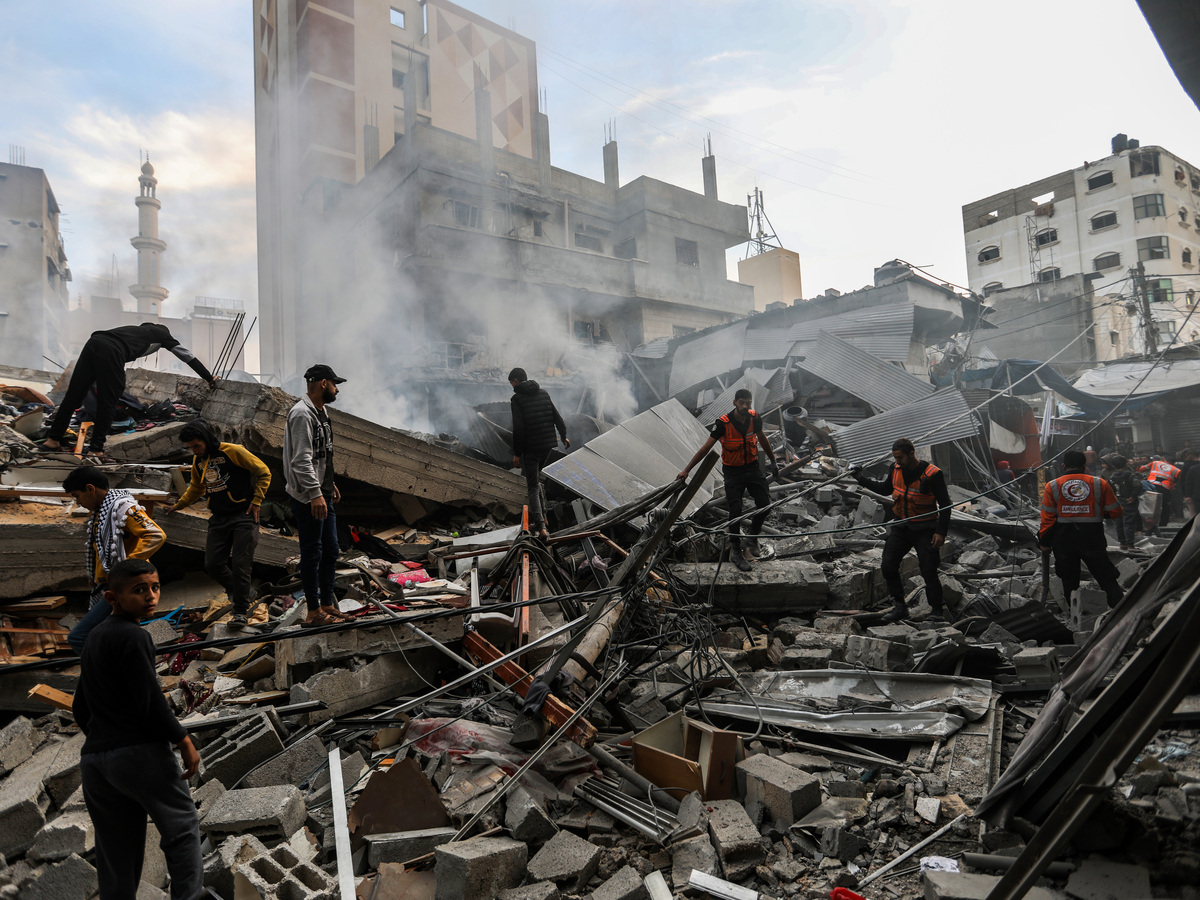
Palestinian citizens inspect destruction from air strikes on Dec. 4 in Khan Younis, Gaza. Ahmad Hasaballah/Getty Images hide caption

Palestinian citizens inspect destruction from air strikes on Dec. 4 in Khan Younis, Gaza.
Ahmad Hasaballah/Getty ImagesIsrael has stepped up military operations in Gaza after the temporary ceasefire ended last week. Gaza health officials say several hundred Palestinians have been killed and hundreds more have been wounded since the fighting resumed, complicating how the U.S. maintains its alignment with Israel.
NPR's Fatma Tanis speaks with analysts who say that U.S. support for Israel is undermining American interests and NPR's Mary Louise Kelly speaks with Peter Baker, chief White House correspondent for the New York Times, about how President Biden's history with Israel is shaping current U.S. policy.
Email us at
This episode was produced by Fatma Tanis and Elena Burnett. It was edited by Courtney Dorning and Larry Kaplow. Our executive producer is Sami Yenigun.

 Live Radio
Live Radio